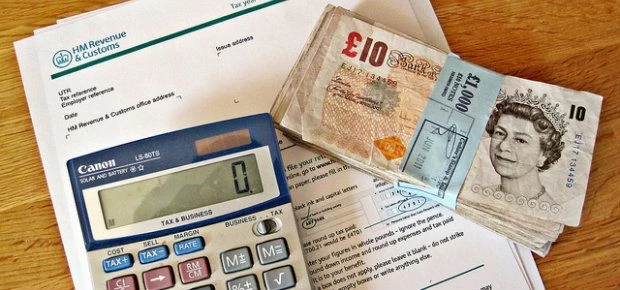
Partner Article
3,000 Yorkshire taxpayers could face £600 million cash call as new HMRC tax avoidance powers granted
Tax experts at Grant Thornton in Leeds are warning of the possibility of a crippling wave of HMRC tax demands following new legislation and powers that came into effect in recent weeks.
HMRC estimates that nationally £5.1 billion of tax is owed by individuals, companies and trusts which have participated in tax avoidance schemes that are now deemed invalid, and Yorkshire’s share of this pot could top £600 million spread across 3,000 taxpayers in the region.
Previously, tax payers contesting disputed payments now owed due to schemes coming under legal scrutiny, were afforded credit on the outstanding disputed debt.
However the new 2014 Finance Act that was enacted on 17 July will mean thousands of Yorkshire tax payers are now likely to receive so called ‘follower notices’ and/or ‘accelerated payment notices’ that will require closure of planning arrangements and the upfront payment of tax or risk further hefty cash penalties.
“HMRC has really taken its gloves off when it comes to tax disputes, especially when legitimate tax planning of this nature has been fairly widely used in the last five years or so,” commented Karen Riley, who leads the tax investigations team at Grant Thornton in Leeds.
“With recent powers granted to group schemes together with other similar ones when judgements are passed to save the Government time and money in handling disputes and prosecutions, we expect to see demands for tens of thousands in unpaid taxes hitting doorsteps on a daily basis.”
Proposals to extend HMRC’s powers allowing it to reach into individual’s personal bank accounts to recover unpaid tax and penalties have added to the impact of the latest new legislation.
It all adds up to a massive cash flow crisis for tax payers who were appealing the validity of tax schemes or who have not yet even begun to defend their position, and, would have previously faced payments at the conclusion of a tax dispute much further down the line.
“Whether an individual scheme is legitimate or breaks the rules, the tax will now have to be paid ahead of the judgement, if the scheme is deemed to follow the format of a similar one that has been adjudged to be in breach of the rules,” added Neil Sengupta, partner in Grant Thornton private client team in Leeds.
“Worse still, for some it also means hefty tax liabilities will have to be paid now regardless of whether they are deemed to be grouped with another party’s litigation.
“That means many people will have to find large sums of additional cash, undoubtedly some will have already spent the tax savings they thought they had gained, and others will be invested into non-liquid assets that might be difficult to borrow against.”
The shift to effectively a ‘guilty until proven innocent’ stance on tax payments will be welcomed by the majority of ordinary taxpayers, but leaves many with cash planning issues that could prove insurmountable unless early anticipation of a demand is assumed, warns Riley.
“We don’t expect clients will be happy to face the earlier repayments, and we know in some cases it will cause knock-on issues.
“The best advice right now is that if you are appealing the validity of a scheme that gave a tax advantage, is to assume you could face a demand at any time. Correctly calculate the cash demand with an expert tax adviser and plan for releasing or borrowing the funds as early as possible,” concluded Riley.
Further detailed information can be found at http://www.grant-thornton.co.uk/en/Services/Tax/Tax-Investigations/Accelerated-payments/
This was posted in Bdaily's Members' News section by Grant Thornton .
Enjoy the read? Get Bdaily delivered.
Sign up to receive our popular Yorkshire & The Humber morning email for free.








 The value of using data like a Premier League club
The value of using data like a Premier League club
 Raising the bar to boost North East growth
Raising the bar to boost North East growth
 Navigating the messy middle of business growth
Navigating the messy middle of business growth
 We must make it easier to hire young people
We must make it easier to hire young people
 Why community-based care is key to NHS' future
Why community-based care is key to NHS' future
 Culture, confidence and creativity in the North East
Culture, confidence and creativity in the North East
 Putting in the groundwork to boost skills
Putting in the groundwork to boost skills
 £100,000 milestone drives forward STEM work
£100,000 milestone drives forward STEM work
 Restoring confidence for the economic road ahead
Restoring confidence for the economic road ahead
 Ready to scale? Buy-and-build offers opportunity
Ready to scale? Buy-and-build offers opportunity
 When will our regional economy grow?
When will our regional economy grow?
 Creating a thriving North East construction sector
Creating a thriving North East construction sector